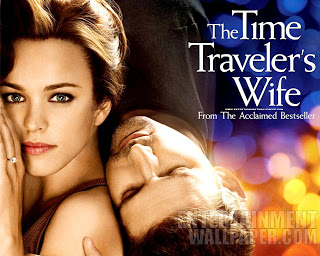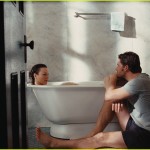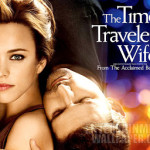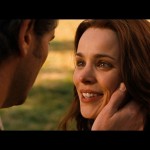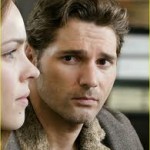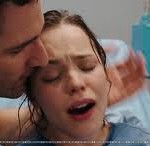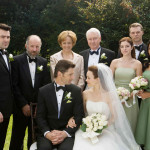We can forgive the American spelling of “travellers” in the title of this movie and move swiftly on, much as the movie does. As you may have guessed, this is a movie about time travel, but very different in tone from, say, Slaughterhouse 5, Back to the Future, The Terminator, Triangle, Source Code, Harry Potter and the Prisoner of Azkaban, the grandaddy of them all – HG Wells’s The Time Machine, and many, many more.
This example of the genre, adapted from a best-selling debut novel by Audrey Niffenegger, is primarily a romantic drama in which the time travelling both made such a romance possible and threatens its very existence and ultimately contributes to his demise. Some would call it a rom-com, though I’m not convinced it is funny enough, and such a label detracts from the poignant essence of the plot.
To the eponymous traveller, Henry, his time travelling is a necessary evil, something beyond his control arising from a genetic defect and occurring with increasing frequency the more stressed he becomes – and turning up at any time and place starkers probably doesn’t help his stress levels. He first encounters The Time Traveller’s Wife herself as a child, and goes back to visit her many times. Eventually in adulthood she introduces herself to him at a before he has returned to meet her (hope you’re keeping up, but it’s not that difficult.)
They fall in love and in due course marry, in spite of his alarming tendency to vanish for weeks at a time. But nobody could say Henry does not provide for his family as his wife’s career in art begins to take off – though most of us don’t have the ability to predict lottery numbers by virtue of going forwards in time to check the results. The difficulty comes when the inevitable pregnancy occurs, though I will draw a veil over the plot details at this point.
From this unlikely scenario Eric Bana and Rachel McAdams make a good go at credibility in one of those moments when an actor has to imagine the unimaginable. But with focus set so firmly on their emotional entanglement by German director Robert Schwentke, this is always a human drama in which the hero has the heart-rending tendency to vanish during romantic clinches. Arguably it works far better at this level too, since the special effects are not up there with the finest as Henry dissolves into the ether.
However…. while since female friends assure me they have wept buckets, I was not moved to tears. As a bloke I am not ashamed to say I can indeed cry at moments of poignancy during great movies like It’s A Wonderful Life and Brief Encounter, among others. Clearly TTTW is good but not in that company, yet I am left wondering why I did not care more, enough to feel involved with the characters. I can’t think of any obvious ingredients missing, yet…. something doesn’t quite click for me, where for others it evidently does.
If and when I think of the answer, I’ll let you know, but in the meantime this is certainly a movie worth seeing, if you have not already seen it.

